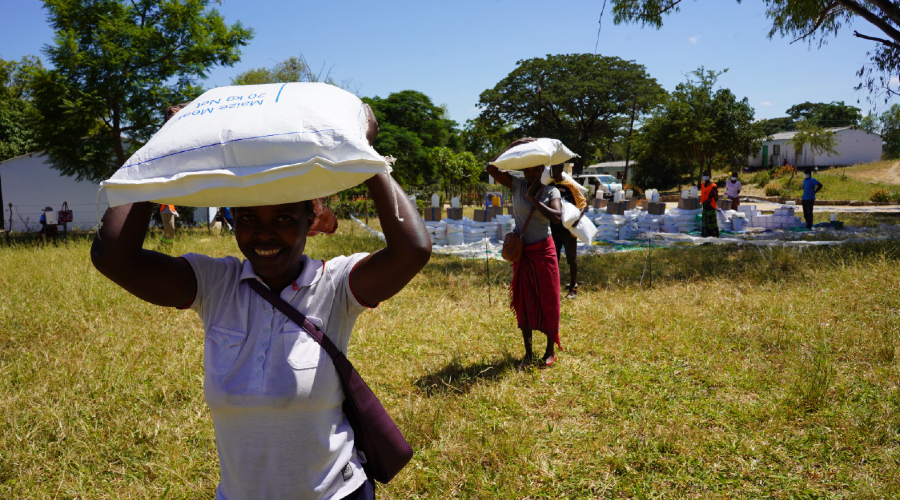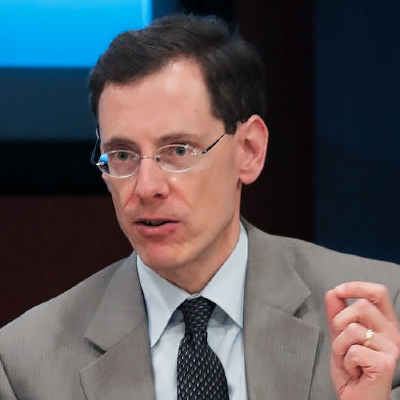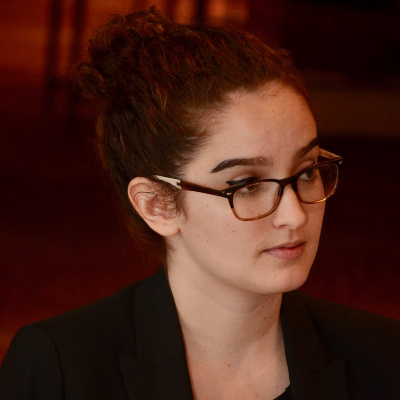Health Diplomacy in Africa: Competition and Opportunity
China has led the aid response to the coronavirus crisis in Africa. The United States should step up.

Editor’s Note: The coronavirus pandemic will hit Africa hard in the months to come. For years, China has made inroads there, using its economic clout to build relationships even as the United States has retreated from the region. Mark Lagon and Rachel Sadoff of the Friends of the Global Fight Against AIDS, Tuberculosis and Malaria argue that the United States can improve its influence in Africa vis-a-vis China through health diplomacy. In so doing, the United States can better the humanitarian situation in Africa while improving America's standing there.
Daniel Byman
***
Dynamic change in Africa is now pivotal in the global balance of power. Until the onset of the novel coronavirus pandemic, the continent’s 54 countries had been growing in wealth at unprecedented rates since 2000, prompting a race among the world’s preeminent powers to invest, win goodwill and, in some cases, acquire strategic assets on the continent. As COVID-19 emerges in Africa, health diplomacy represents a strong U.S. asset to engage Africa in the face of China’s major investment presence.
China is making unprecedented and calculated inroads into the continent. The country’s trade relations have grown remarkably since 2003, including a 30-fold increase in investments in Africa and a nearly eight-fold increase in annual development financing. China’s Belt and Road Initiative (BRI)—an estimated $6 trillion global infrastructure project engaging more than 70 countries—is courting new partnerships that pave the way for long-term influence on the continent.
China characterizes the BRI as a means to “support Africa’s capacity-building for internally-driven development” in sectors such as infrastructure, trade and public health. BRI loans yield highly publicized, big-ticket outputs, such as high-speed trains and ports, which are considered “positive” by almost three-quarters of African beneficiaries. The flexibility of this model of development assistance has inspired African governments to increasingly accept loans offered by China over alternatives led and supported by the United States.
As a prerequisite for receiving BRI loans, which can be disbursed practically without oversight, governments must offer collateral in the form of strategic assets such as oil, airports or land rights. If BRI funds are squandered, as they often are, countries land in what has been referred to as a “carefully laid debt trap.” In 2015, this funding comprised one-third of new debt taken on by African governments, in part because Chinese interest rates are nearly twice that of traditional aid agencies.

Regarding the U.S. profile on the continent, the Trump administration announced its “Prosper Africa” plan in December 2018. While voicing goals of improving Africa’s “access to financing” and strengthening its middle class, the plan is explicitly designed to “put the interests of the American people first.” Further, U.S. exports to the continent halved between 2014 and 2017, while the president has thus far left official travel to the continent to his wife and daughter, and made international headlines for repeatedly describing African nations as “shithole countries” and Nigerian households as “huts.”
Chinese investments on the continent are successfully filling the vacuum created by U.S. diplomatic disengagement. Reuben Brigety, a former U.S. ambassador to the African Union, wrote recently in Foreign Affairs that African policymakers feel the United States’s uncertain and erratic relations with them implies that Washington is “ceding its position as a preferred partner to other countries and organizations, especially China and the EU.” Among other observers, an Atlantic Council study aptly concluded the BRI’s impact “will undoubtedly reduce US influence.”
The coronavirus pandemic has shed light on the stakes for U.S. standing in Africa, where all but one of the continent’s 54 countries have reported positive cases. The consequences of the pandemic are expected to plunge sub-Saharan Africa into its first recession in 25 years and cause food shortages for 43 million people in West Africa alone. The threat of spread is more pressing than ever, not only because it exacerbates relevant threats to state stability and Africans suffer disproportionately from underlying conditions, but also because China is rapidly and publicly meeting its needs. China’s government, foundations and philanthropists have begun to distribute tens of millions of masks, ventilators and test kits; and philanthropist Jack Ma has pledged to donate PPE to every country on the continent. Their interventions have already been characterized as a Chinese effort to “consolidate its influence in Africa” in a “leadership vacuum” left by the United States.
The United States does not intend to match the level of foreign direct investment offered by China. Hence, it is essential that it pursue new diplomatic and economic strategies. The United States ought to meet China’s growing influence in Africa by scaling an existing comparative advantage that will demonstrably promote public prosperity, welfare and goodwill: strategic health diplomacy. Congress is already considering a prudent first step and should approve emergency funding for the Global Fund’s COVID-19 Response Mechanism to help African nations continue progress against HIV, tuberculosis and malaria during the new pandemic.
To advance positive U.S. influence and interests in sub-Saharan Africa, we recommend capitalizing on two decades of bridge-building earned through foreign aid by more proactively pursuing health diplomacy. In both 2015 and 2018, reports from the Bipartisan Policy Center established that “when national governments do good abroad by actively working to improve public health, they may also further their own foreign policy agenda.” Strategic health diplomacy presents a unique opportunity for the United States to nonconfrontationally counter ascending Chinese influence, as well as position itself as an active, valuable supporter of Africa’s development and emergence on the global stage.
Strategic health diplomacy offers multiple benefits, including curbing destabilizing pandemics and winning positive humanitarian standing. Two of the United States’s most substantial and effective health partnerships—the President’s Emergency Plan for AIDS Relief (PEPFAR), and the Global Fund to Fight AIDS, Tuberculosis, and Malaria (Global Fund), to which the United States is the primary contributor (33 percent permitted by law)—have been shown to advance socioeconomic development, state stability, positive public opinion of the United States, and the implementation of countries’ diplomatic cooperation with the United States. PEPFAR helps countries form strategies, track data and enable local clinics to combat HIV/AIDS. With the U.S. known to provide one-third of its resources, the Global Fund finances, purchases at scale drugs and other commodities, and requires private-sector and civil-society partners in countries’ responses to the three largest epidemics to date.
A 2019 study in the Annals of Global Health documented a “significant, beneficial effect” of Global Fund investments in terms of implementing countries’ “political freedoms, government accountability, quality of public services and independence of state institutions, rule of law, and controls on corruption.” These governance consequences would offer much-needed benefits to African countries suffering from the impacts of the coronavirus pandemic. Violence and endemic infectious diseases creates a vicious cycle: Epidemics increase the risk of state collapse, which makes nations less capable of preventing and treating diseases, leading to increased infection and mortality rates.
Strategic health diplomacy not only contributes to the prosperity and stability of increasingly consequential partner countries but also positions the United States to participate in Africa’s rise. It will support the creation of a more resilient and growing Africa with which the United States can partner. Stronger economies, labor forces, and consumer buying power yield direct economic benefits to U.S. interests. Leadership on health is a U.S. comparative competence to leverage one form of foreign aid that produces tangible results, and a signature symbol of a humane and efficacious U.S. brand in Africa and the world. In addition to advancing U.S. economic interests in Africa and other developing regions, it also solidifies partnerships that are important to U.S. counterterrorism and security goals.
Complementing the renovation of U.S. development investment with the extension of leadership on health is crucial to mutually beneficial U.S. engagement in Africa. These offer to Africa something distinctly different from China: transparency, accountable governance, and investment in people instead of investments in state default. Standing with sub-Saharan African nations to tackle the health security threats of epidemics (including the novel coronavirus, in addition to HIV, tuberculosis, malaria and Ebola), transition to resourcing their own health systems, and empower their citizens to thrive economically is strategic. It offers clear benefits to Africa. And in the face of a rising China, it benefits the United States by improving its standing in Africa and worldwide.
This article is adapted from a piece that was originally published in The National Interest.






